NA passes budget with majority vote
Govt rejects all opposition’s amendments; approves Rs261b supplementary budget
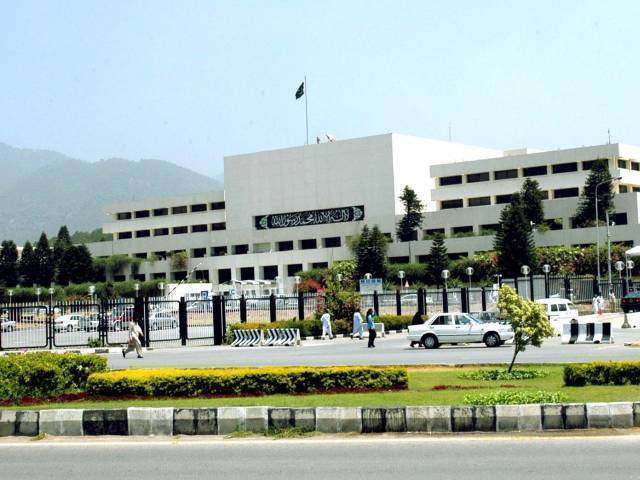
Parliament House. PHOTO: NA.GOV.PK
After a marathon debate spanning over two weeks, the lower house of parliament passed Budget 2016-17 with a majority vote. The house also passed Rs261 billion supplementary budget that the government spent beyond the statutory limit set by the National Assembly for the outgoing fiscal year.
The government rejected every single amendment proposed by the opposition parties particularly on excluding Fiscal Responsibility and Debt Limitation Act from the finance bill. However, the government said it had incorporated the proposals of upper house of parliament.
“This budget is a continuation of our economic journey and our next target is to enhance the GDP growth rate,” Finance Minister Ishaq Dar said in his concluding remarks after the passage of the bill.
The minister did not miss the opportunity to pay tribute to his leadership particularly Prime Minister Nawaz Sharif who underwent a heart surgery last month and presided over mandatory cabinet meeting through video link.
Though majority of the MPs were least interested in the laborious proceedings, they were united when it came to increase in their salaries. Dar said the issue would be taken up with the prime minister upon his return in line with the recommendations of the standing committee and consensus of the house.
In this regard, amendment in finance bill has been moved which empowers the “government to revise salaries and allowance of the MPs through a notification.”
Dar also responded to the points raised by the opposition particularly the PPP over delay in the NFC award. He justified the delay by saying that there was also an instance when an NFC award remained in place for 17 years.
The minister urged for the opposition’s support while saying, “You will have to agree with us that we will make the life of non-filers difficult.”
He said the rationale of provinces about the Input Tax on purchases of raw material was not justified as they are not ready to pay but eager to get if Federal Board of Revenue (FBR) has to make them payments. The provinces would have to behave themselves, he added.
He said the ratio of direct taxes was 42.4 per cent and that the withholding tax was also a direct tax. “I will not withdraw withholding tax,” he insisted.
China-Pakistan Corridor
Responding to concerns about the China-Pakistan Economic Corridor (CPEC), Dar clarified once again that $35 billion out of $45 billion would be spent on electricity projects by private sector.
Dar said the secret behind success of India, China and Singapore was Foreign Direct Investment (FDI), adding that
Swiss Accounts
The minister clarified that he never said that the $200 billion of Pakistanis sitting in Swiss banks would be brought back to help end all the issues the country is facing.
“We should keep in mind what happened with the United States and other countries in such cases. The Swiss never returned them their money,” he added.
However, he said, in addition to bilateral talks with Swiss authorities, government was trying to join the OCED—a multilateral treaty of which around 100 countries are signatory. “This treaty will exchange information with the member countries and it will start functioning from July 2017,” he said.
Earlier, the opposition demanded increase in direct taxes and to end indirect taxes including withholding taxes besides seeking inclusion of the rich in tax net.
Published in The Express Tribune, June 23rd, 2016.



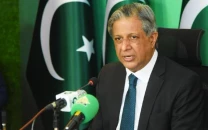
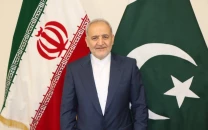
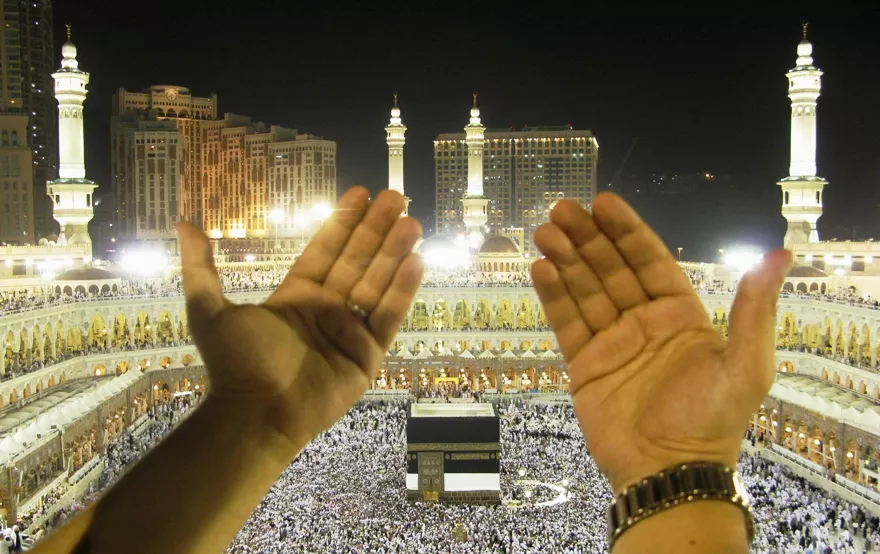
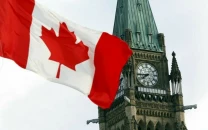












COMMENTS
Comments are moderated and generally will be posted if they are on-topic and not abusive.
For more information, please see our Comments FAQ